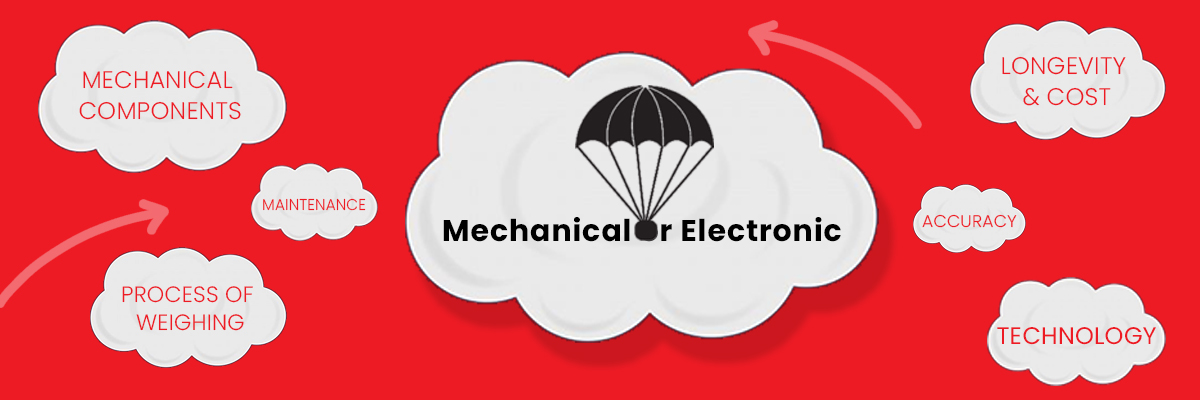Mechanical vs. Electronic Weighbridges: Which One Suits Your Needs?
Weighbridge is the best one-time investment for any business. But do you know which is the ideal weighbridge for your business?
Earlier, there were mechanical weighbridges, which were in high demand for weighment. And now, with the advancement of science and technology, weighbridges have been upgraded to electronic weighbridges.
Let us know about
i) Electronic Weighbridges: These are advanced weighing systems used to measure the weight of vehicles or goods. They employ electronic technology, such as load cells or strain gauges, to accurately determine the weight of the load.
ii) Mechanical weighbridges: These also known as mechanical truck scales or mechanical weigh stations, are devices used for weighing vehicles such as trucks, trailers, and other heavy-duty vehicles. These weighbridge machines are typically found in various industries, including transportation, logistics, mining, agriculture, and waste management.
Are you curious to know more about these two kinds of weighbridge machines? Both of them have different components, and there are a lot of factors based on which they differ.
The factors by which you can distinguish between mechanical and electronic weighbridges are:
- Mechanical Components: The mechanical components of mechanical weighbridges are levers, rods, and springs, whereas electronic weighbridges have load cells, junction boxes, indicators, computer systems, and other peripheral devices.
- Process of weighing: The process of weighing in mechanical weighbridges is possible through a mechanical lever system to convert the weight of the vehicle into readable values. On the other hand, in electronic weighbridges, load cells are used to measure weight.
- Accuracy: The accuracy of electronic weighbridges is relatively higher than that of mechanical ones, as they give precise readings with minimal errors. Mechanical weighbridges are not very reliable as the mechanical components tend to wear out, which can lead to more fluctuations in weight.
- Maintenance: These types of weighbridges require periodic maintenance and calibration. The components comprising both weighbridges need to be inspected as per their functionality.
- Technology: Electronic weighbridges are more technical than mechanical weighbridges. Load cells and strain gauges help in the conversion of the weight of the vehicles, which is further displayed digitally in an indicator. Contrarily, mechanical weighbridges have a lever system and springs to capture the heavy-duty vehicle’s weight, which is displayed on a pointer or dial.
- Longevity and Cost: The expenses of mechanical weighbridges are much more affordable than those of electronic weighbridges. With respect to longevity, electronic weighbridges are less durable than mechanical ones because they lack a robust structure.
So these are the factors based on which you can decide which kind of weighbridge machine will suit your purpose. However, it is recommended to opt for electronic weighbridges, as they are more trendy and updated in nature. Mechanical weighbridges are not in demand because they are not considered reliable and are not used in industries nowadays.
Weighbridge for industrial manufacturers needs to be chosen wisely and you will come across a lot of weighbridge manufacturers who will guide or misguide you to select which type of weighbridge machine you should buy.
Tulsi Weigh Solutions Pvt. Ltd. has more than 70 years of experience and has established itself as one of the leading brands in the weighbridge industry. In addition to pitless and pit-type weighbridges, they also manufacture electronic weighbridges. Spare parts of the weighbridges, like load cells, jumbo boxes, etc., are additional products that are available in Tulsi.
Quality is the main key to our weighbridges, and we’re proud to showcase the major clients we’ve dealt with.
- Tata tea
- Dalmia Group
- Shyam Steel
- Bajaj
- Rashmi Group








